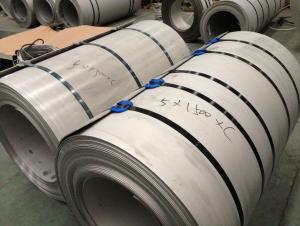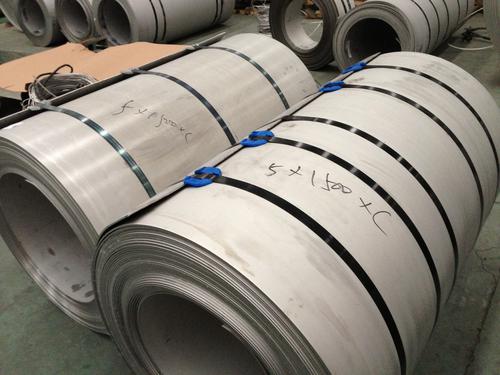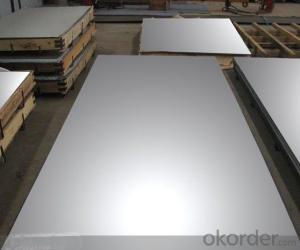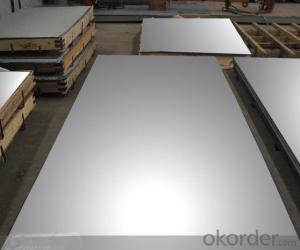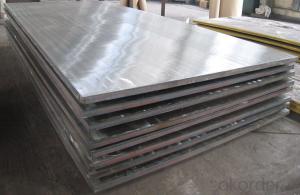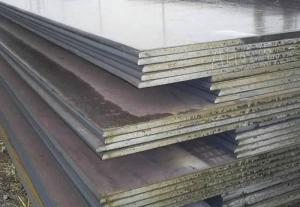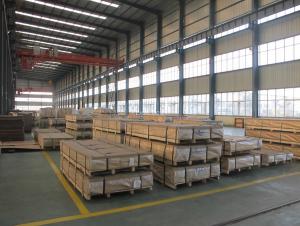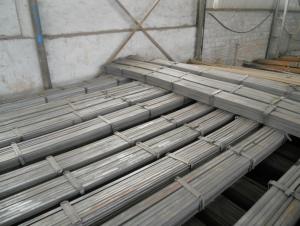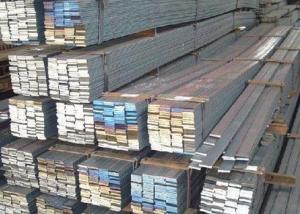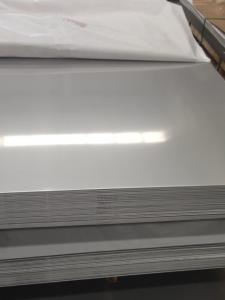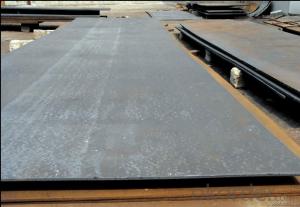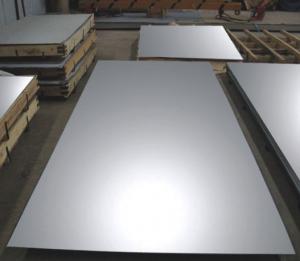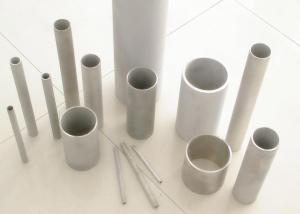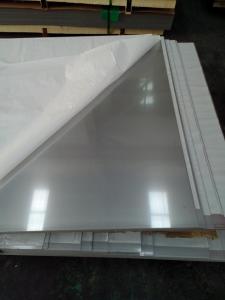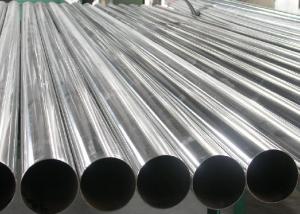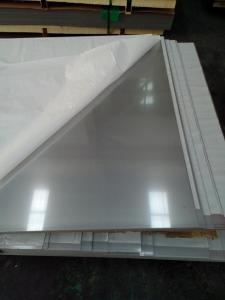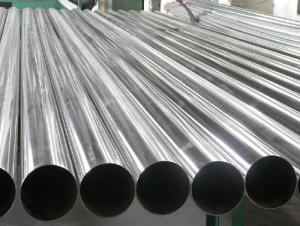Stainless Steel Hot Rolled Plates And Slabs Stocks
- Loading Port:
- Shanghai
- Payment Terms:
- TT or LC
- Min Order Qty:
- 3 m.t.
- Supply Capability:
- 5000 m.t./month
OKorder Service Pledge
OKorder Financial Service
You Might Also Like
1.Structure of Product Description
Stainless steel sheet /plate/slabs and also the stainless steel checkered sheet are all widely used in the field of construction field and decoration field, etc. There are many different grades, such as: 200 series, 300 series, 400 series, 900series, etc. The detailed grade are as follows: 201, 202, 301, 304, 316, 410, 420, 430, etc.
The surface is including 2B, BA, Mirror Finish, Checkered, etc.
2. Main features of the product
a. Competitive price
b. Frist-Class Service.
c. Shortest service.
3. Image.
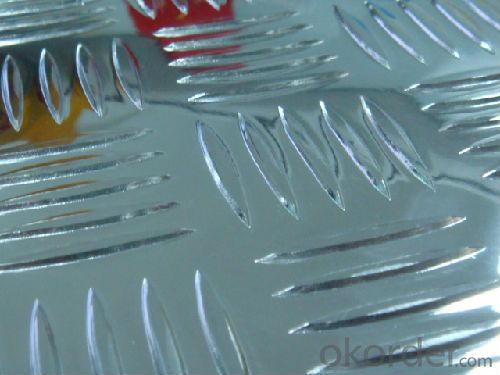
4. Product detailed sizes:
1000mm*2000mm,1250mm*2500mm,1500mm*3000mm, etc.
5. FAQ:
What is the quality standard?
---Usually our standard is GB3880-2006 or else.
What is the width range?
---It is from 1000mm to 2500mm, etc.
What is the length range?
---It is from 2000mm to 6000mm, etc.
What is the MOQ for your products yet?
---Normally it is around 3 tons/each size.
Where is your client from?
---Normally it is from Japan, USA, ENGLISH, SINGAPORE,Vietnam, Indonesia, UAE, Saudi Arabia, Aman,Turkey, Fiji, ETC.
What is your mainly products?
---Normally they are stainless steel sheet, stainless steel coil, stainless steel checkered sheet, stainless steel mirror finished sheet, color coated stainless steel sheet, etc.
have you cooperated with Chinese suppliers before?
---Looking forward to your feedback soonest.
- Q: Can stainless steel sheets be used for insulation?
- Typically, stainless steel sheets do not serve as insulation materials. Despite being widely used for their durability and resistance to corrosion and heat, stainless steel lacks good insulation properties. The purpose of insulation materials is to minimize heat transfer by reducing conduction, convection, and radiation. These materials usually possess low thermal conductivity, making them effective in preventing heat transfer. On the contrary, stainless steel has high thermal conductivity, allowing it to easily conduct heat. To achieve insulation, it is more common to utilize materials like fiberglass, mineral wool, foam boards, or reflective barriers. These materials have lower thermal conductivity and can effectively trap air or create a barrier that restricts heat transfer. In comparison, stainless steel sheets cannot provide the same level of insulation as these specialized materials. Nevertheless, stainless steel sheets still find utility in construction or industrial settings due to their strength, corrosion resistance, and aesthetic appeal.
- Q: What are the common applications for stainless steel sheets?
- Due to their exceptional properties and durability, stainless steel sheets find a wide range of applications. They are utilized in various industries for different purposes. Some of the common uses include: 1. Architectural purposes: Stainless steel sheets are commonly employed in architectural projects like cladding, roofing, and wall panels. They not only provide a sleek and modern appearance to buildings but also offer corrosion resistance and easy maintenance. 2. Kitchenware manufacturing: Stainless steel sheets are widely used in the production of kitchen appliances, sinks, countertops, and cookware. Their resistance to stains, heat, and corrosion makes them ideal for use in kitchens. 3. Automotive industry: Stainless steel sheets are extensively utilized in the automotive sector for manufacturing exhaust systems, body parts, and trim. They provide strength, corrosion resistance, and an attractive finish, making them suitable for both functional and aesthetic purposes. 4. Medical equipment production: Stainless steel sheets are commonly employed in the manufacturing of medical equipment and instruments. This is due to their hygienic properties, resistance to corrosion, and staining. They are used in surgical instruments, dental tools, hospital equipment, and implants. 5. Chemical and petrochemical industries: The chemical and petrochemical industries extensively use stainless steel sheets due to their resistance to high temperatures, chemicals, and corrosion. They are employed in storage tanks, pipelines, heat exchangers, and other equipment that comes into contact with corrosive substances. 6. Food processing industry: Stainless steel sheets are highly sought after in the food processing industry because of their hygienic properties and resistance to corrosion. They are used to create food preparation surfaces, storage containers, and machinery that must meet strict sanitary standards. 7. Construction projects: Stainless steel sheets are used in construction projects such as bridges, tunnels, and railway tracks due to their strength, durability, and resistance to corrosion. They are also utilized in the construction of industrial buildings, warehouses, and infrastructure. 8. Aerospace industry: Stainless steel sheets find applications in the aerospace industry for various components, including aircraft frames, engine parts, and interior fittings. They offer an excellent strength-to-weight ratio, corrosion resistance, and heat resistance, making them suitable for demanding aerospace applications. In conclusion, stainless steel sheets are a versatile and widely used material in various industries due to their exceptional properties. They are indispensable for many applications.
- Q: What is the thickness range of stainless steel sheets?
- The thickness range of stainless steel sheets can vary depending on the specific grade and application. However, typically stainless steel sheets are available in thicknesses ranging from 0.4mm to 6mm. Additionally, there are specialized stainless steel sheets available in thinner gauges, such as foil sheets that can be as thin as 0.02mm. On the other hand, for heavy-duty applications, stainless steel sheets can be as thick as 50mm or more. Ultimately, the desired thickness of a stainless steel sheet will depend on the intended use, structural requirements, and aesthetic preferences.
- Q: Are stainless steel sheets resistant to oxidation?
- Stainless steel sheets possess resistance against oxidation. Chromium, which constitutes a minimum of 10.5% of stainless steel, generates a chromium oxide protective layer on the surface upon contact with oxygen. Serving as a barrier, this layer hinders oxygen from reaching the steel beneath, effectively preventing oxidation. This corrosion-resistant characteristic of stainless steel renders it an excellent option for numerous applications that involve exposure to moisture or harsh surroundings. Moreover, stainless steel sheets can also incorporate additional alloying elements like nickel, molybdenum, and titanium, thereby augmenting their resistance against oxidation and corrosion.
- Q: Are stainless steel sheets suitable for cryogenic applications?
- Yes, stainless steel sheets are suitable for cryogenic applications due to their excellent mechanical properties, low thermal conductivity, and resistance to temperature extremes. Stainless steel can maintain its strength and integrity even at extremely low temperatures, making it an ideal material for cryogenic storage tanks, pipelines, and equipment.
- Q: Are stainless steel sheets suitable for railway station platforms?
- Yes, stainless steel sheets are suitable for railway station platforms. They are durable, resistant to corrosion, and can withstand heavy foot traffic, making them ideal for this application. Additionally, stainless steel sheets are easy to clean and maintain, ensuring a safe and aesthetically pleasing platform for passengers.
- Q: How do you prevent galvanic corrosion when using stainless steel sheets?
- One effective method to prevent galvanic corrosion when using stainless steel sheets is to ensure they are not in direct contact with dissimilar metals. This can be achieved by using insulating materials or coatings, such as rubber gaskets or paint, between the stainless steel sheets and other metals. Additionally, regular maintenance and cleaning of the stainless steel surfaces can help prevent the accumulation of corrosive substances that could lead to galvanic corrosion.
- Q: What are the common sizes and thicknesses available for stainless steel sheets?
- Common sizes for stainless steel sheets range from 4 feet by 8 feet to 5 feet by 10 feet, although custom sizes can also be produced. The thicknesses typically vary from 0.4mm to 6mm, with the most commonly used thicknesses being 0.8mm, 1mm, 1.2mm, and 1.5mm.
- Q: What is the maximum thickness available for stainless steel sheets?
- The specific grade of stainless steel and the manufacturing capabilities of the supplier can cause the maximum thickness of stainless steel sheets to differ. Nevertheless, stainless steel sheets are commonly available in thicknesses ranging from 0.5mm to 80mm. It should be emphasized that thicker sheets are typically utilized for specialized purposes that demand heightened strength and durability, like construction projects or heavy machinery. To ensure the desired thickness is obtainable, it is essential to carefully consider the intended use of the stainless steel sheets and seek advice from a reputable supplier.
- Q: What is the electrical conductivity of stainless steel sheets?
- The specific grade and composition of stainless steel sheets can cause variations in their electrical conductivity. In comparison to metals like copper or aluminum, stainless steel is generally not recognized for its high electrical conductivity. Nevertheless, it does possess some degree of electrical conductivity. The reason for stainless steel's typically lower electrical conductivity compared to most metals is the higher presence of non-conductive elements like chromium and nickel. While stainless steel is commonly selected for its resistance to corrosion rather than its electrical conductivity, it can still be employed in specific electrical applications where moderate conductivity is deemed acceptable.
Send your message to us
Stainless Steel Hot Rolled Plates And Slabs Stocks
- Loading Port:
- Shanghai
- Payment Terms:
- TT or LC
- Min Order Qty:
- 3 m.t.
- Supply Capability:
- 5000 m.t./month
OKorder Service Pledge
OKorder Financial Service
Similar products
Hot products
Hot Searches
Related keywords
